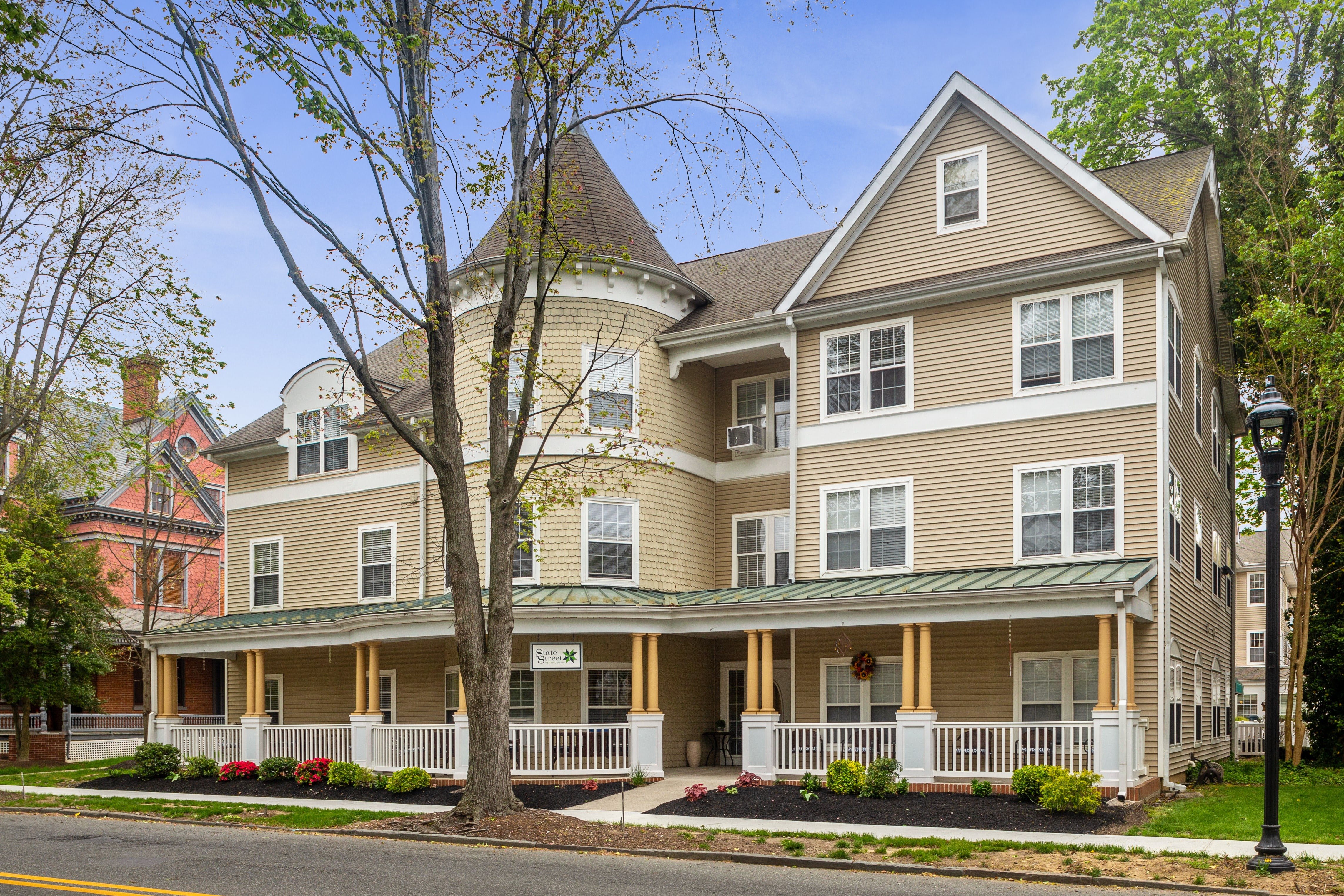Top Reasons to Choose Personalized Memory Care Over Standard Care
Top Reasons to Choose Personalized Memory Care Over Standard Care
Blog Article
Exploring the Value of Memory Care Provider in Small Memory Care Homes
Memory treatment services play an important function in enhancing the lives of people with cognitive disabilities. In tiny memory treatment homes, the focus moves to customized care tailored per citizen's special needs. These intimate settings cultivate much deeper connections and an encouraging community. The inquiry remains: just how do these atmospheres especially contribute to the psychological well-being of both homeowners and their families? Recognizing this dynamic discloses the true worth of specialized memory care.
Understanding Memory Treatment and Its Significance
Memory care is a necessary component in dealing with the distinct demands of individuals with cognitive disabilities, such as mental deterioration and Alzheimer's disease. This specialized type of treatment concentrates on creating a risk-free and supportive setting tailored to the challenges dealt with by these people. Memory treatment centers employ skilled staff who recognize the intricacies of cognitive decline, providing individualized treatment that advertises dignity and respect.Activities and regimens are made to stimulate memory retention and cognitive function while making certain safety and safety and security. Additionally, memory treatment stresses social communication, which can ease sensations of isolation and improve emotional wellness. By cultivating an organized setting, people can browse their everyday lives with more confidence. Comprehending the significance of memory treatment exposes its function in improving quality of life, making it possible for individuals to keep as much independence as possible while obtaining the assistance they require.

The Advantages of Smaller Memory Treatment Residences
Smaller memory care homes provide a more intimate setting that can substantially improve the top quality of look after homeowners. With less citizens, employee can construct more powerful connections, fostering trust and psychological links. This individualized attention commonly results in boosted interaction, making it much easier for caretakers to understand and satisfy the one-of-a-kind requirements of each citizen. On top of that, smaller environments usually reduce interruptions and stress factors, promoting a soothing atmosphere for memory retention and psychological wellness. The design of smaller sized homes often urges socialization amongst citizens, permitting significant interactions that can battle feelings of seclusion. Moreover, these homes can adjust extra quickly to modifications in care needs, making certain that homeowners receive prompt support. In general, the personalized interest, reduced anxiety, and enhanced social chances located in smaller sized memory care homes produce a caring environment that sustains both cognitive feature and emotional wellness
Personalized Care Program for Individual Requirements
Individualized care plans are crucial in dealing with the one-of-a-kind needs of individuals in memory treatment. These plans frequently consist of tailored support techniques that improve daily living and advertise wellness. In addition, personalized task involvement helps locals get in touch with their passions, fostering a sense of purpose and happiness.
Customized Assistance Strategies
When establishing tailored assistance methods in memory treatment solutions, understanding the distinct demands of each individual is fundamental. These techniques include developing tailored treatment plans that satisfy the particular demands, choices, and capabilities of citizens. By reviewing cognitive feature, psychological health, and physical health and wellness, caregivers can create reliable treatments that promote comfort and self-reliance - small memory carehomes Charlotte. This individualized method guarantees that each resident obtains ideal support, enhancing their quality of life. Routine analyses and changes to these strategies are necessary, as they enable caregivers to respond proactively to transforming needs. Additionally, involving member of the family in the preparation process promotes a joint setting, reinforcing the assistance network for individuals with memory obstacles. Ultimately, customized support techniques are essential for supplying compassionate and reliable memory care
Individualized Task Interaction
Producing meaningful involvement with individualized tasks is important in memory treatment services. Memory treatment homes focus on individualized treatment strategies that satisfy the one-of-a-kind requirements and choices of each local. These strategies frequently consist of activities tailored to citizens' interests, capabilities, and cognitive degrees, improving their feeling of purpose and dignity. By incorporating familiar routines, pastimes, and social interactions, caregivers can boost cognitive function and psychological wellness. Individualized task interaction not only fosters a helpful environment yet also motivates citizens to keep their independence. The active involvement in these customized tasks can result in boosted mood and reduced stress and anxiety, enhancing the importance of a holistic technique in memory treatment that recognizes each individual's journey and unique experiences.
Creating a Helpful Neighborhood Setting
While cultivating an encouraging neighborhood setting is essential for those with memory treatment requirements, it requires intentional style and thoughtful interaction. Developing such an environment entails a mix of physical area and social links. Tiny memory treatment homes can profit greatly from layouts that motivate social interaction, such as open typical areas and cozy celebration spaces. These styles promote a sense of belonging and safety for residents.Moreover, team member play a necessary role in growing this setting. Educating caretakers to prioritize empathy and active listening enhances connections and promotes depend on. Furthermore, involving family members in care plans and community tasks can enhance bonds and create a network of support.
Enhancing Social Engagement and Tasks
Efficient social engagement and activities are essential for enhancing the health of locals in memory care homes. These communications not just foster a feeling of belonging yet also stimulate cognitive functions, which can positively affect memory retention. Small memory treatment homes usually supply tailored programs tailored to the unique passions and abilities of each citizen, enabling for even more reliable and meaningful engagement.Activities such as art therapy, music sessions, and team video games urge locals to get in touch with one another, official statement advertising friendships and lowering feelings of isolation. Furthermore, including outdoor tasks, such as horticulture or nature walks, can boost mood and general health.These improving experiences help residents preserve a feeling of purpose and my website delight in their lives. By developing an environment that prioritizes social communication, tiny memory care homes substantially add to the emotional and psychological wellness of their homeowners, guaranteeing they feel valued and supported in their journey.
Supporting Households With the Trip
As family members browse the challenges of taking care of a liked one with memory problems, the assistance provided by tiny memory care homes ends up being necessary. small memory carehomes Charlotte. These homes offer not only specific care for citizens yet also valuable resources for family members. By fostering a collaborative atmosphere, little memory treatment homes urge open interaction, permitting family members to express worries and share experiences.Support teams and instructional workshops are often available, gearing up families with understanding and techniques to handle the complexities of memory loss. Such efforts aid lower feelings of isolation, as families connect with others facing comparable situations.Moreover, little memory care homes commonly provide tailored updates on residents' wellness, easing households' concerns and helping them really feel associated with their liked one's life. This alternative method to support not just improves the high quality of look after citizens yet also encourages households throughout their emotional trip
The Effect of Specialized Staff Educating on Care Top Quality
In little memory care homes, the quality of treatment is greatly influenced by the training and knowledge of the team. Specialized training furnishes caregivers with important abilities to understand and attend to the one-of-a-kind requirements of residents with memory disabilities. Understanding of dementia-related behaviors, efficient communication strategies, and person-centered treatment approaches boosts the capacity of team to develop a helpful environment.Moreover, skilled team are much better prepared to take care of difficult circumstances, lowering the possibility of conflicts and making sure a calmer environment. This training cultivates a deeper emotional link in between caregivers and locals, promoting trust fund and improving general health. In addition, specialized training can lead to higher task satisfaction among caregivers, decreasing turn over rates and providing continuity of look after citizens. Inevitably, the financial investment in personnel education and learning markedly boosts the requirement of care, which is important for improving the lifestyle for people in tiny memory care homes.

Often Asked Questions
Exactly how Do I Select the Right Memory Care Home for My Enjoyed One?
Selecting the right memory care home entails examining individual demands, checking out centers, examining personnel experience, recognizing care choices, thinking about location, contrasting costs, and seeking suggestions. Each element plays a critical function in ensuring excellent care.
What Is the Expense Difference Between Tiny and Large Memory Care Facilities?
The cost difference in between tiny and large memory care facilities can vary substantially. Usually, tiny homes might use more customized care at a higher per-person price, while bigger centers typically provide more amenities at a reduced general cost.
Just How Commonly Can Families Browse Through Their Loved Ones in Memory Treatment Homes?
Family members can usually visit their liked ones in memory care homes as usually as preferred, with several facilities urging regular brows through to maintain links and support emotional health, though particular policies might vary by home.
What Particular Tasks Are Supplied in Small Memory Treatment Homes?
Little memory treatment homes generally use activities like crafts and arts, songs treatment, gardening, exercise classes, and cognitive video games. These tasks are made to involve locals, boost their minds, and promote social communication among them.
Are There Any Kind Of Age Constraints for Locals in Memory Treatment Facilities?
Age limitations for residents in memory care centers usually vary by place and specific center policies. Typically, these homes deal with older adults, typically needing residents to be at the very least 55 or 60 years of ages. In small memory care homes, the focus changes to customized treatment customized to each homeowner's one-of-a-kind demands. Memory treatment centers employ qualified staff that understand the hop over to here intricacies of cognitive decrease, offering customized care that advertises self-respect and routines and respect.activities are developed to promote memory retention and cognitive function while making certain safety and security and security. Smaller memory care homes offer an even more intimate setting that can markedly enhance the high quality of treatment for homeowners. Memory care homes prioritize customized treatment plans that provide to the special needs and preferences of each homeowner. As families navigate the challenges of caring for a liked one with memory impairment, the support offered by little memory care homes ends up being necessary.
Report this page